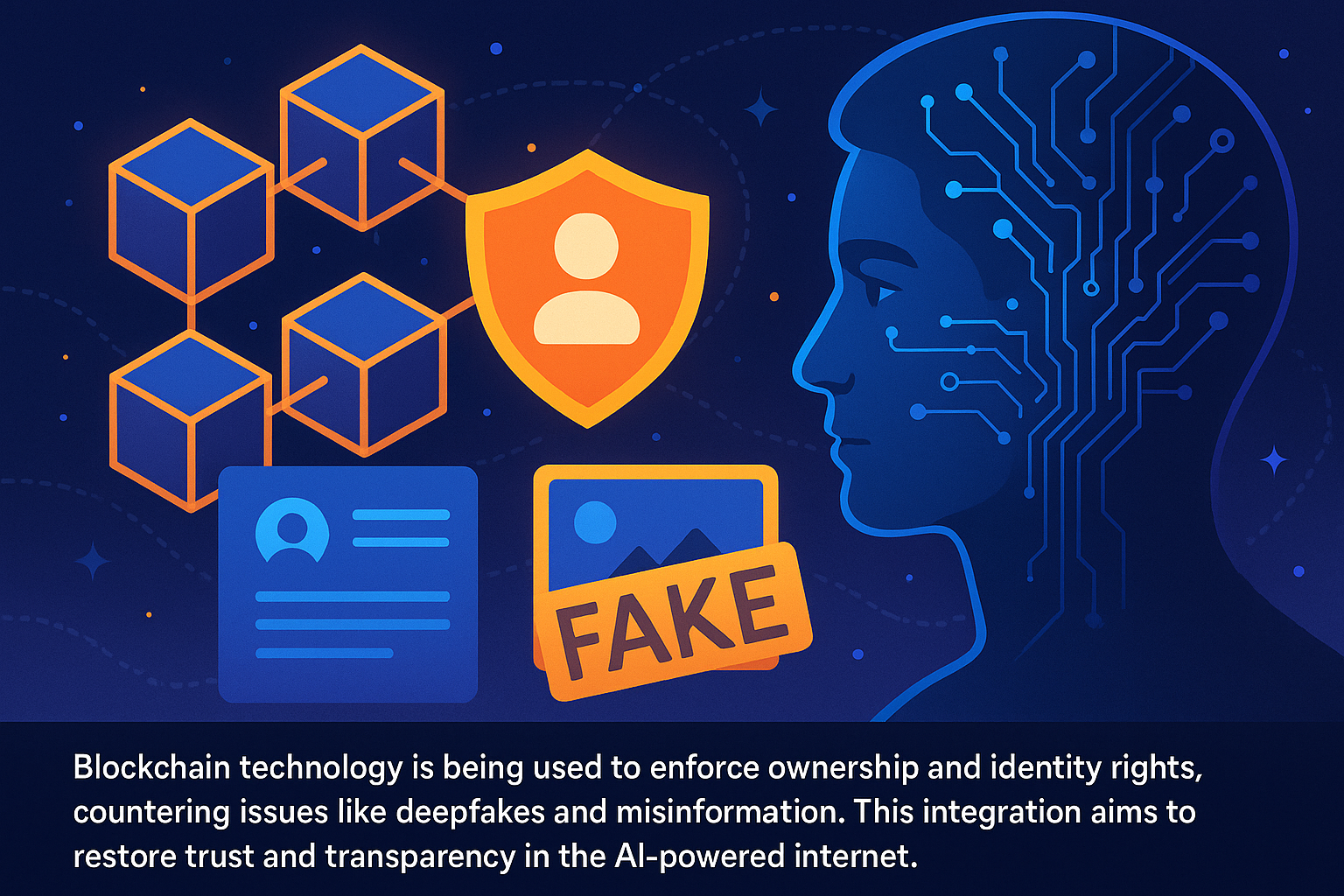As artificial intelligence rapidly evolves, it’s reshaping the very fabric of the internet. AI tools now curate content, drive recommendations, write news, generate art, and even simulate human interactions. But with this surge of power comes an urgent need for safeguards—deepfakes, misinformation, and digital identity theft have become increasingly difficult to detect. That’s where blockchain steps in.
The AI-Powered Internet: Promise Meets Peril
Artificial intelligence has given rise to a hyper-efficient internet. Algorithms can now predict your behavior, generate real-time translations, and optimize digital experiences at scale. But this power can also be misused. AI-generated content often blurs the line between real and fake, and malicious actors exploit this ambiguity to manipulate opinions or impersonate individuals.
From fake political speeches to synthetic news anchors, deepfakes have already caused confusion and damage. Without a system of trust, the digital world risks spiraling into chaos.
Blockchain: A Digital Backbone for Authenticity
Blockchain’s foundational strength lies in its immutability and decentralized structure. By using distributed ledgers, blockchain ensures that once data is recorded, it cannot be altered without consensus. This offers a powerful solution to AI’s most pressing ethical challenge: trust.
Imagine a future internet where every piece of content—images, text, videos—can be traced back to its verified source using blockchain. This isn’t science fiction. Platforms are already experimenting with content “stamping” where each file is cryptographically signed and time-stamped, making its origin indisputable.
Reclaiming Digital Identity
Blockchain also revolutionizes the way we think about identity. In today’s digital age, our identities are fragmented and often controlled by third parties. Decentralized Identity (DID) systems powered by blockchain give users control over their data, credentials, and reputation. Whether it’s proving authorship or defending against impersonation, blockchain-backed identity frameworks offer a level of sovereignty that centralized platforms can’t provide.
This means users can verify who they’re engaging with, even in a world of AI avatars and synthetic profiles.
Transparency as a Default
One of the core values blockchain brings to the AI internet is transparency. With AI decisions—like content moderation or search rankings—becoming more opaque, the public is demanding accountability. Blockchain can log AI decision-making processes, offering traceable records of why certain actions were taken.
This “audit trail” can help expose biases, errors, or manipulation in AI systems, making algorithms more accountable and transparent to users and regulators alike.
Restoring Trust in the Digital Ecosystem
The fusion of AI and blockchain marks the next phase of the internet—one where intelligence meets integrity. While AI expands what’s possible, blockchain ensures it’s done responsibly. Together, they form the architecture of a user-first, trust-driven internet.
In this vision of the future, users aren’t passive consumers of manipulated content. They’re empowered participants in a transparent, verified, and secure ecosystem.




